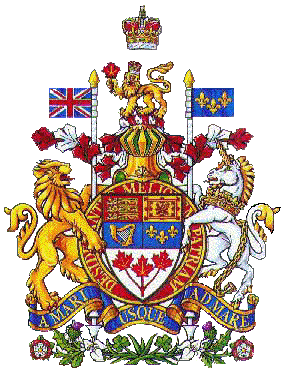 |
 |
| << return | ||
The Sound and Fury
|
||
February 1998 |
OJPG | |
Parliament is often described as Canada's true national theatre. If this season's opening performances are any indication, the country is set for a repertoire of high tragedy and low comedy.
The disappointment is that the only reply the opposition parties have been able to muster is the usual tired chorus. From the right, Reform and the Conservatives call for tax cuts and less spending. From the left, the NDP calls for more spending and higher taxes. Somewhere behind the curtain, the Bloc is rehearsing its humiliations. This is not a debate of ideas, much less of competing visions. This is little more than the dull roar of egos exhaling themselves. The dramatic irony is that the actors seem blissfully unaware that the more they mouth these lines, the less attention the audience pays. The coming fiscal surplus begs far deeper questions than what incremental adjustments can be made to taxes or programme funding. It should give Canada pause to re-evaluate the very definition of the state. The world is fast changing beyond all recognition. If our values as Canadians are to survive, to continue finding meaningful expression in society, the form and function of government will have to change faster still. In an era of globalisation and yet of civic identity increasingly rooting itself at the regional and community levels, what is the appropriate role of a national government? What do Canadians need from their government and what do they expect of it? Where does the government now best serve the public interest by direct intervention, by regulation, by moral leadership, or by inaction? How can the government work with the market to achieve social objectives without distorting either? What national enterprise can the government constructively embrace that will foster a shared national vision? The country and the government itself need an intelligent parliamentary opposition to ensure that the answers are sought in an atmosphere of vigorous and broadly based debate. By failing to even ask the questions, the opposition parties have shown themselves unequal to their duty. The danger to the opposition parties themselves is that they will tumble further into irrelevancy. The danger to the government is that its agenda will be shaped by a sterile discourse, leaving the real business of the nation undone. The danger to Canada is that Parliament will wake to this reality too late. In any democracy, we never receive the governance we deserve; we get the governance we demand. If Canada is to escape the peril of an irrelevant parliamentary process, ordinary Canadians must force the debate from which our Loyal Opposition shrinks. Until then, too many parliamentarians will remain content with the sound and fury of Question Period, yearning after little more than the sound-bite that will survive into the evening news. Outside the windowless theatre of the Commons, the drama of history is passing them by. |
||
|
|
|
Remembering Desmond Tutu |
|
|
My article in the Globe and Mail |
|
TVOntario’s The Agenda |
|
|
Reflecting on the life of Queen Elizabeth II |
|
United Nations |
|
|
My address in the UN General Assembly Chamber |
|
CBC Radio’s The House |
|
|
The dirt on the federal two billion trees programme |
|
|
|
 Unsurprisingly
for a party returned to government on its record, the Liberals have
kept to the script of deficit elimination. It is, for the time being,
an appropriate, if quickly realised policy.
Unsurprisingly
for a party returned to government on its record, the Liberals have
kept to the script of deficit elimination. It is, for the time being,
an appropriate, if quickly realised policy.